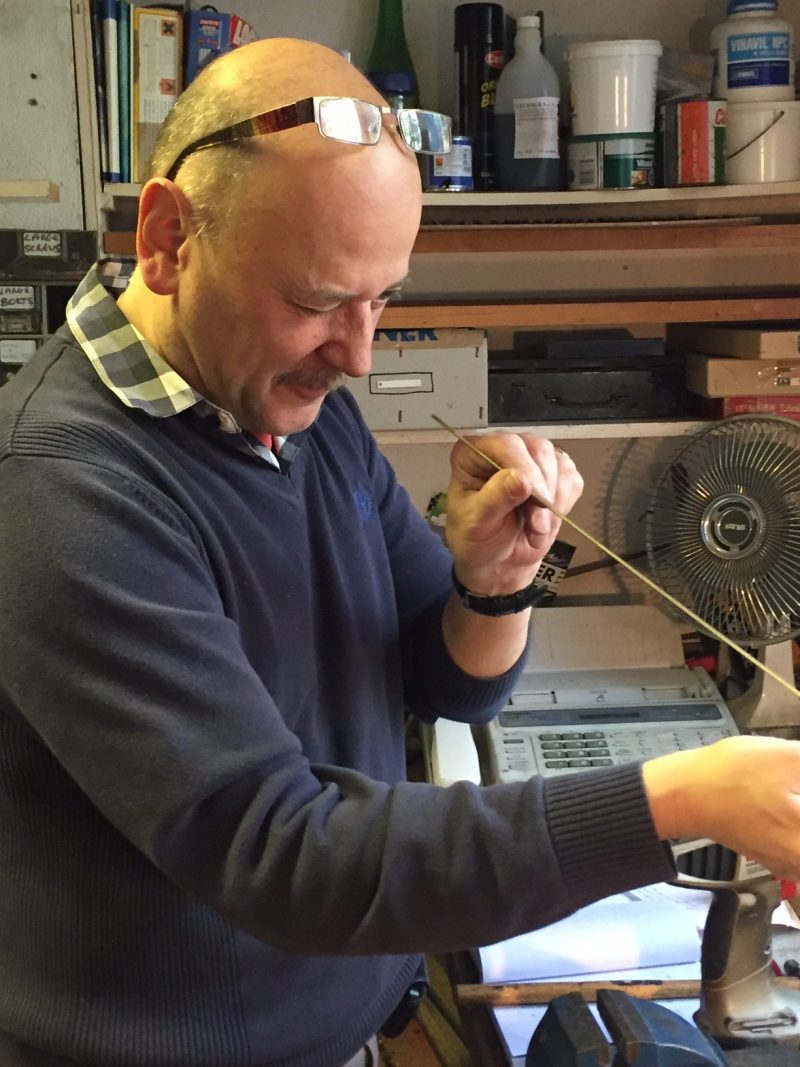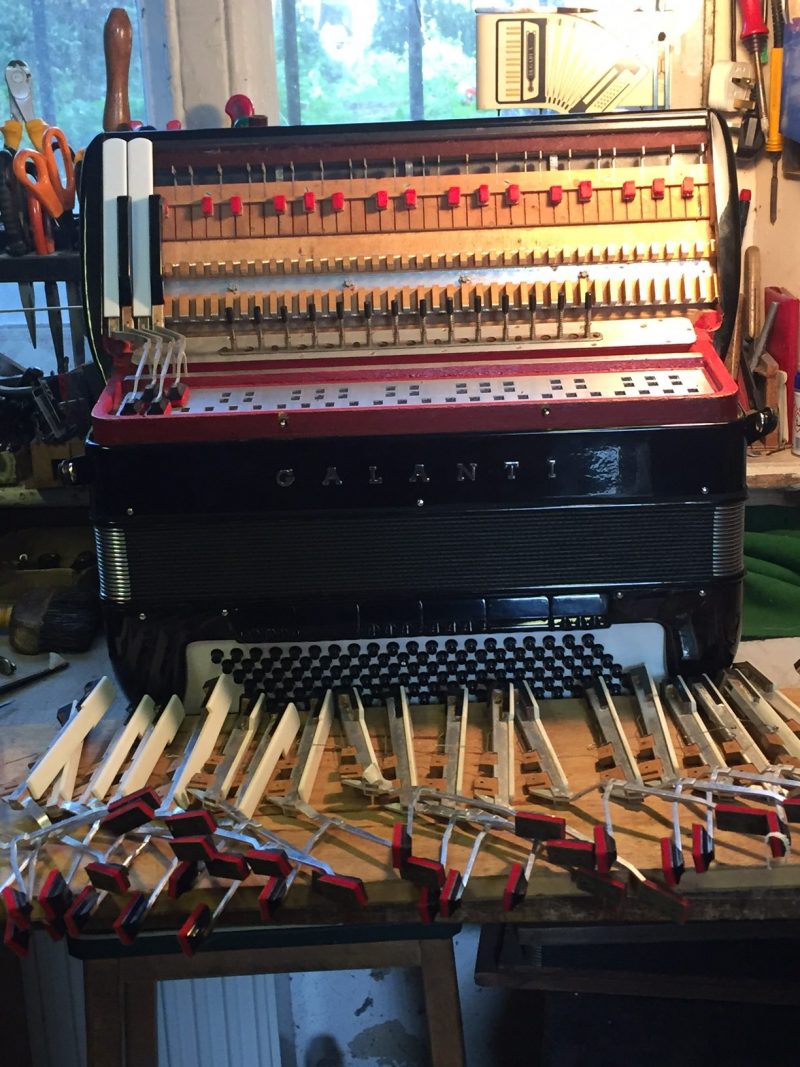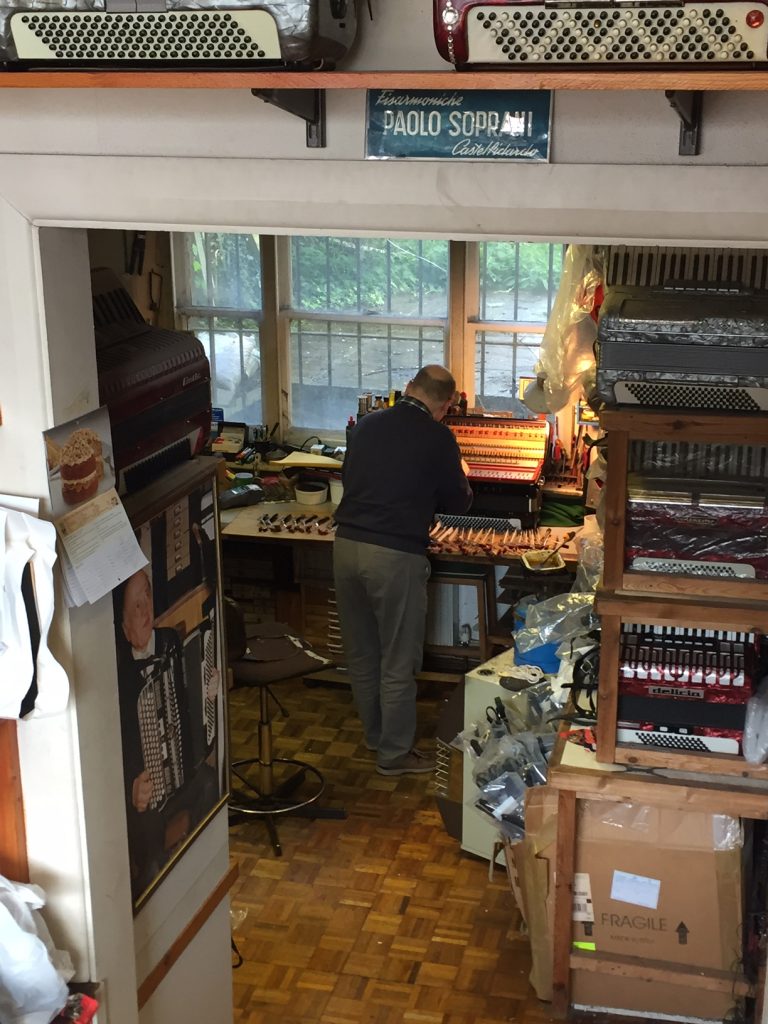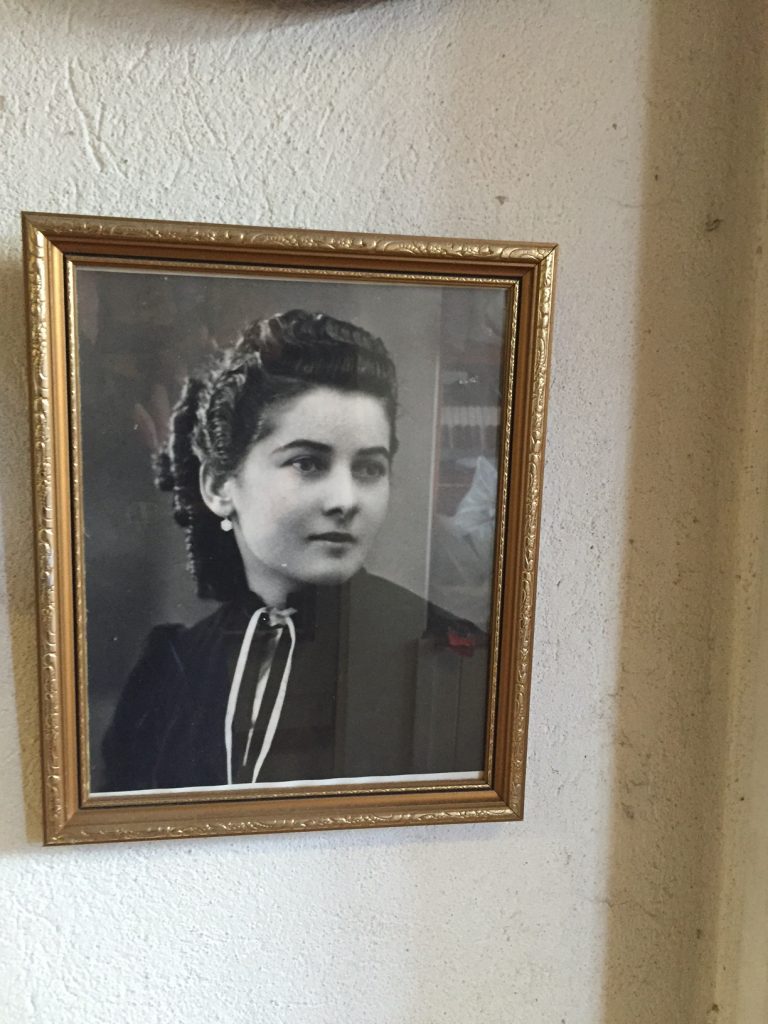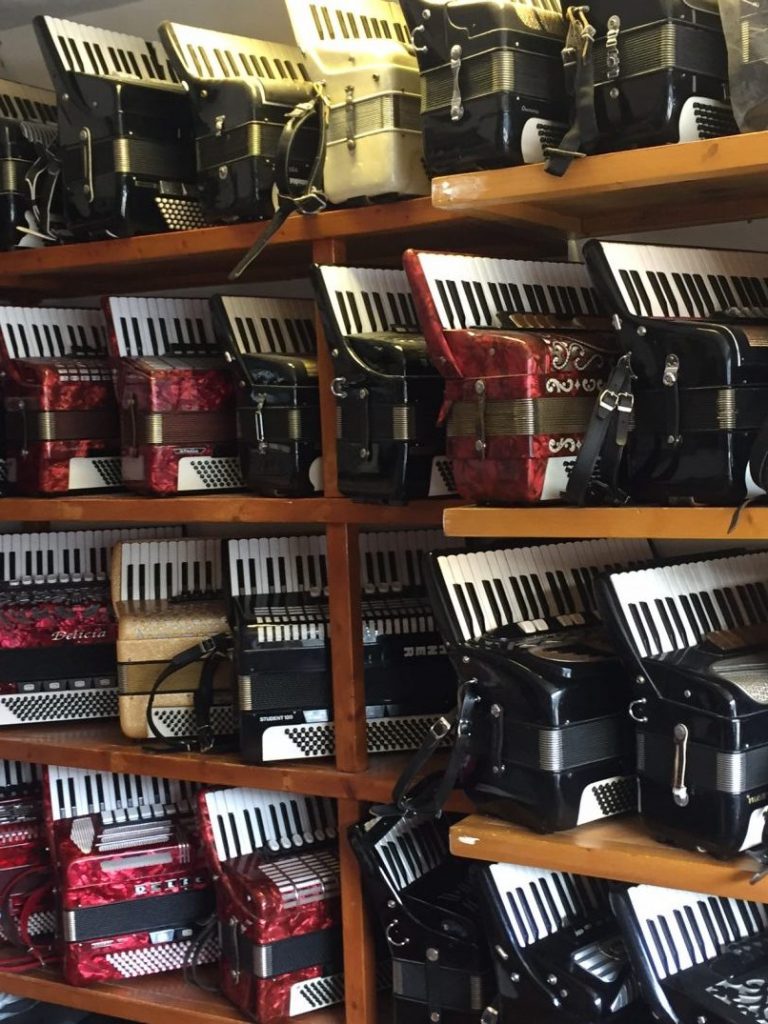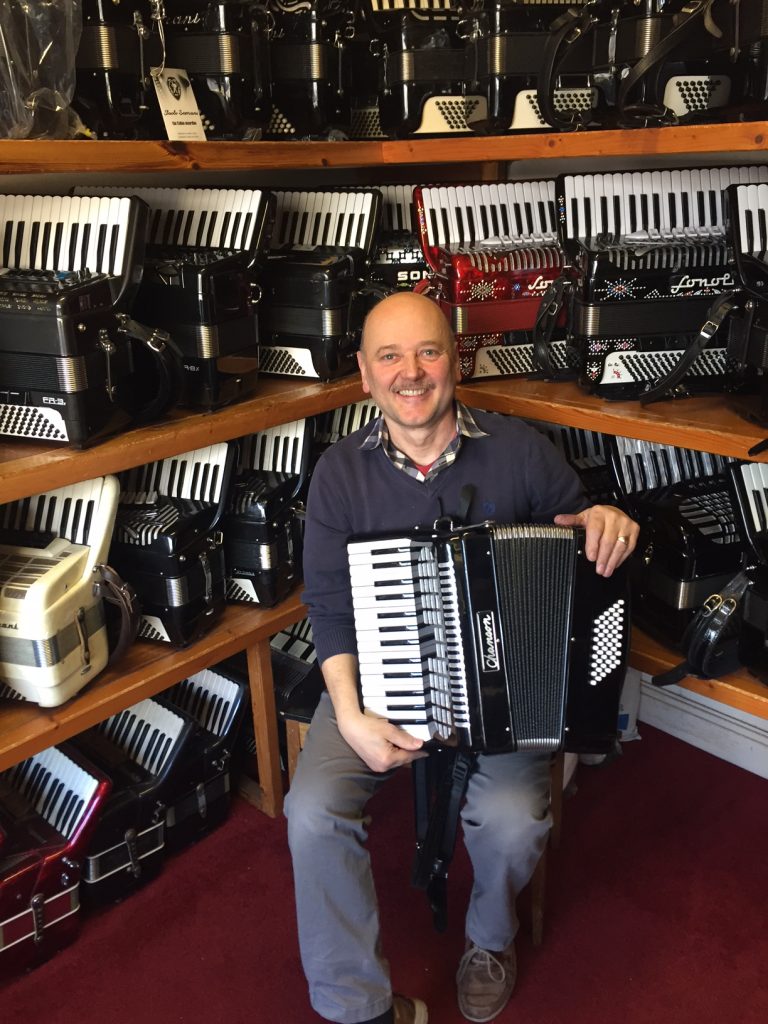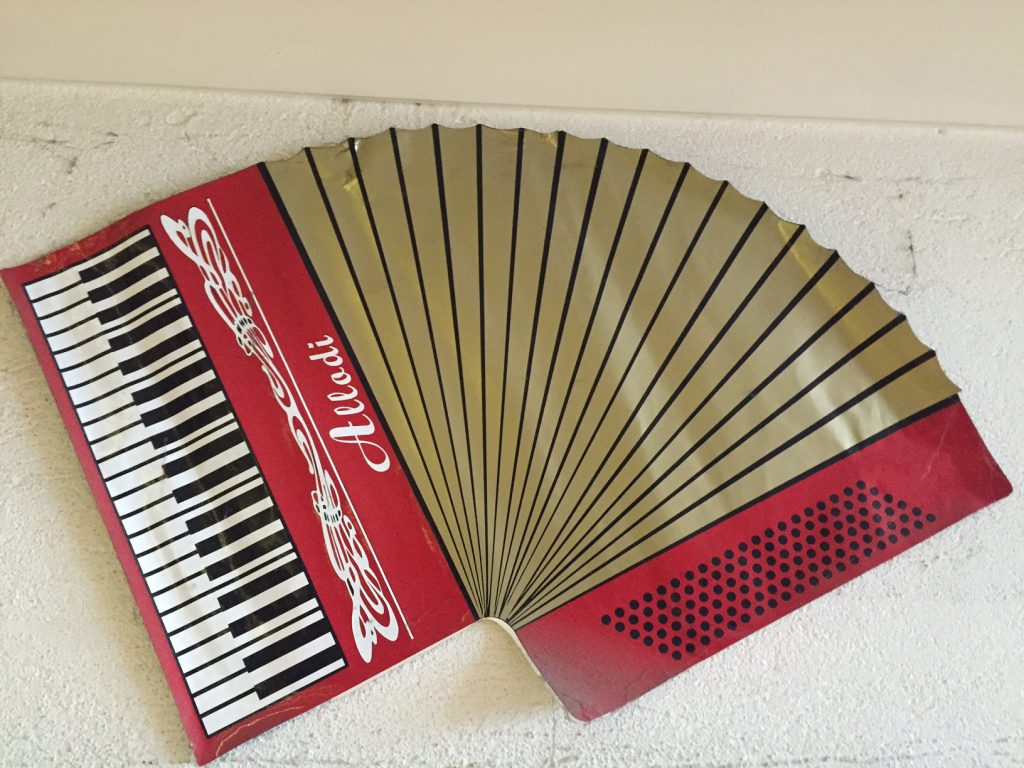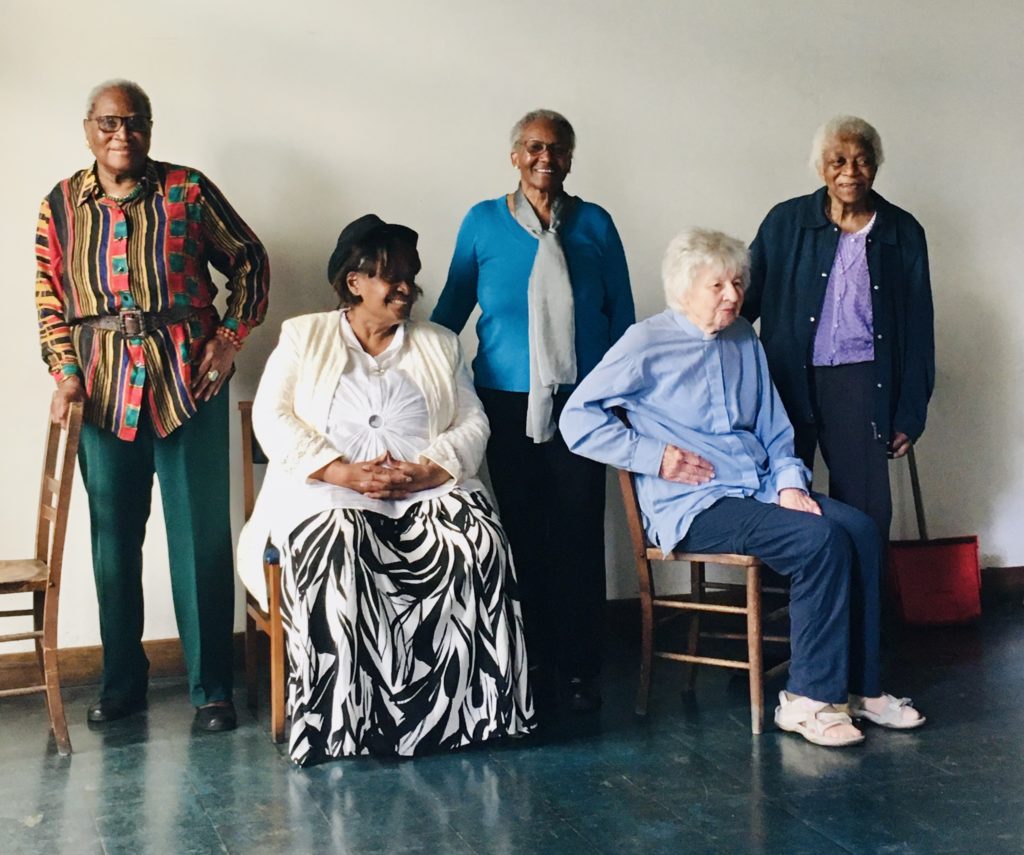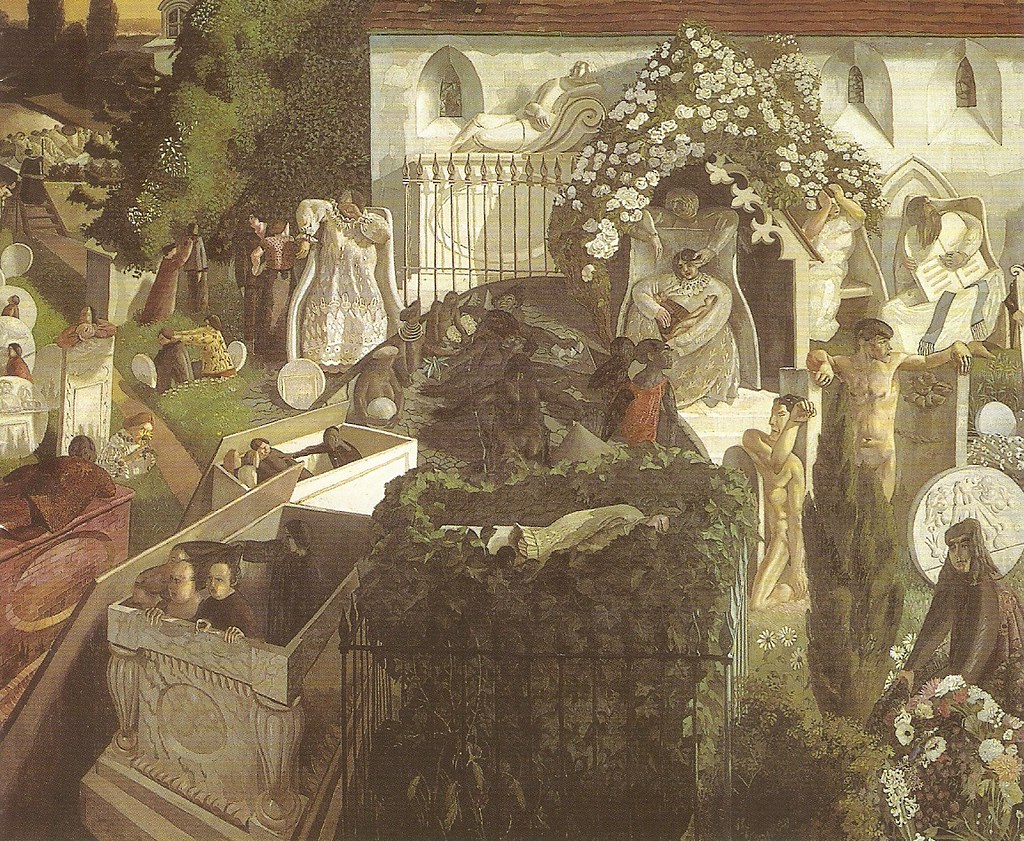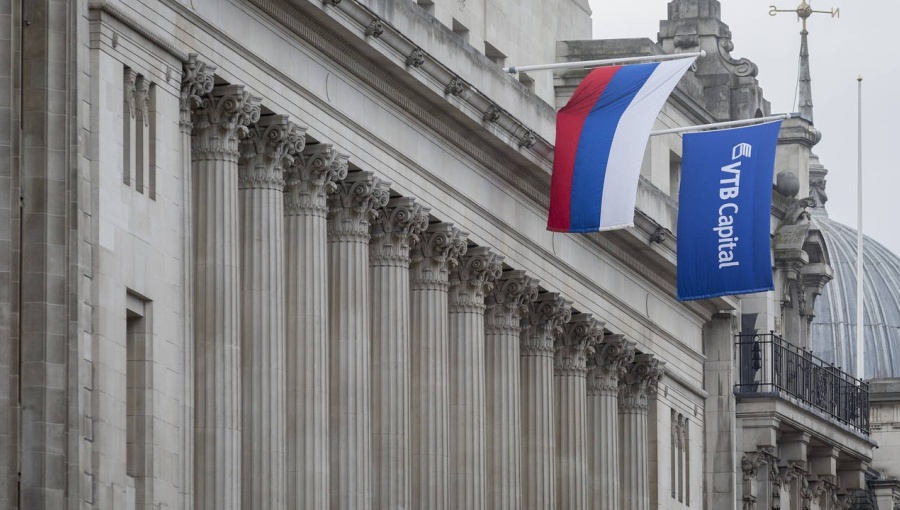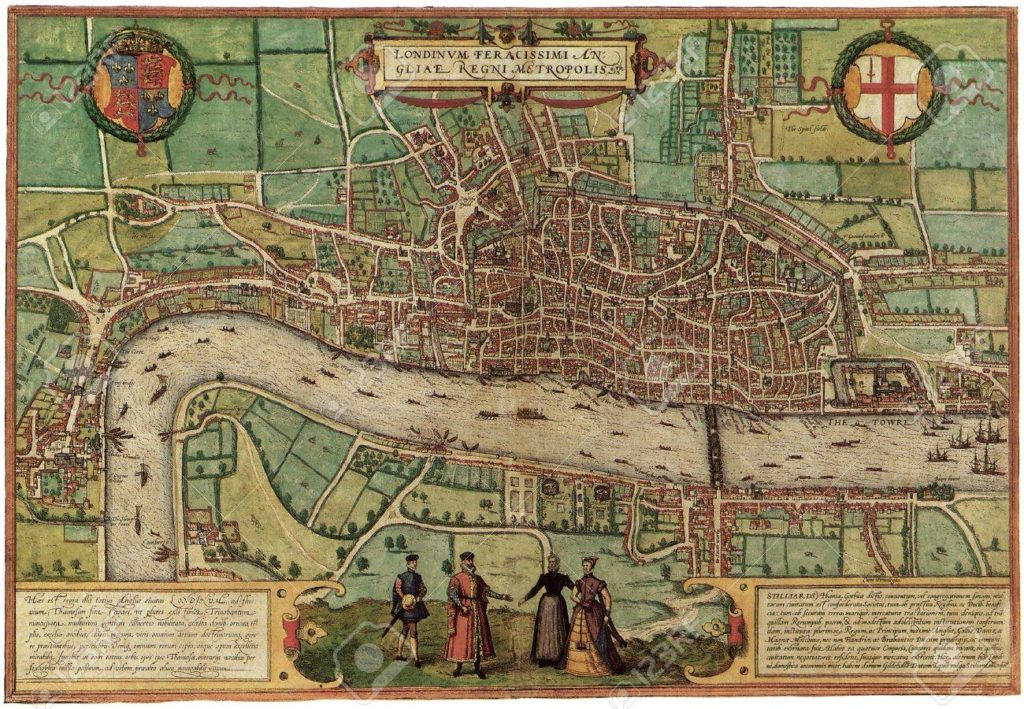Accordion A & E
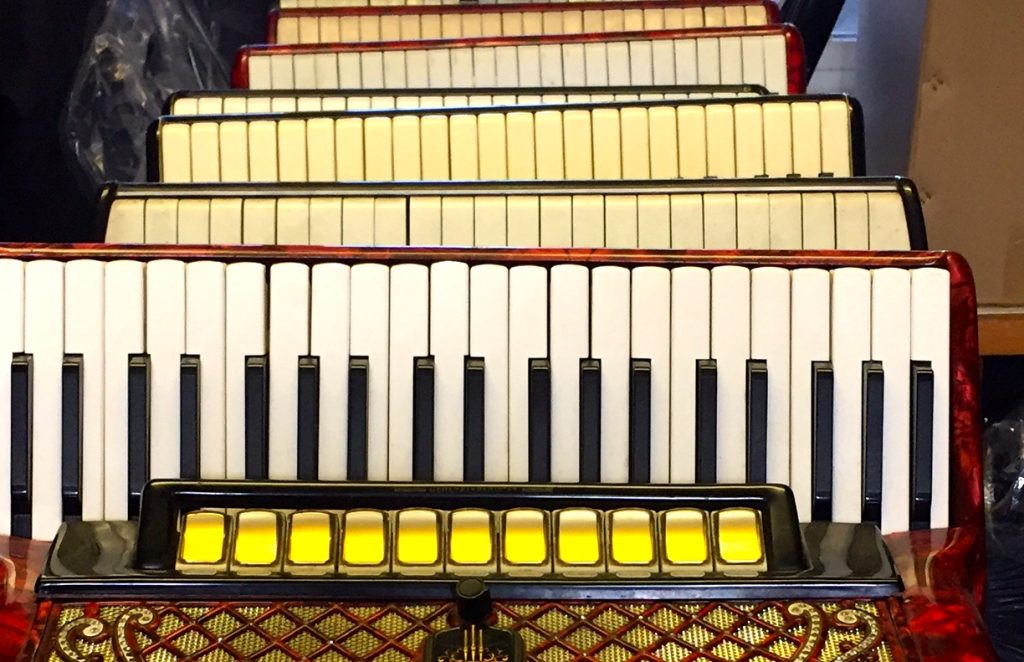
One day it was fine but then the next it started wheezing. First the top notes then even my middle C was getting croaky. Was it accordio-bronchitis? I put it in a warm place overnight but in the morning its condition was worse. Now there was also a rattling, as though a screw had come free somewhere deep inside the bellows. I knew I needed to act quickly. I rang Mr Allodi.
“Please can you help, Mr Allodi, my accordion is rattling and wheezing and I don’t know what to do.”
“Does she struggle to play the top notes?”
“Yes.”
“Is she gurgling?”
“Yes! Gurgling, yes!”
“Would you say her voice is at all… constricted?”
“Constricted? Yes, it’s definitely constricted!”
“I think you need to bring her in.”
I put my accordion into its sling and cycled it backpack style to the station, catching the East London line to New Cross Gate. And then I biked on into deepest Lewisham in search of Mr Allodi and his accordion clinic. I had to ring him when I got lost. And when I eventually arrived I took my instrument straight downstairs and placed it on his workshop table.
Immediately he set to work. He did some tests, flipping it over onto its back. Deftly unscrewing its brace he exposed the reed nest inside and, with a single movement, he seemed to detach it from the bellows, pulling it free.
I winced.
“Please,” he said, “would you mind just stepping upstairs and waiting in the shop while I complete the procedure?”
I withdrew, watching nervously from the showroom as he worked with quiet concentration on my accordion.
I looked around at the shelves of accordions packed like a kit room for a marching band.
There were also photographs of his parents. From one wall his mother looked benignly at her son as he tried to return the gift of song to my broken instrument. It was this gift that during the War had saved his Italian father and uncle from certain death at the Russian front. When it was discovered that they played the accordion they were ordered to remain behind in the barracks, entertaining the troops, raising morale. And it was this gift of song that had brought the pair subsequently to London, after the war, to pursue their career as performers and then to set up shop. It was a gift that passed to his son who is now the go-to fisarmonicista in London.
Mr Allodi came upstairs and sat me down.
He told me it was going to be OK. It turned out that a number of valves had been bent away from the reed plate and it was this that was causing the gurgling sound, restricting the way the air flowed into the instrument. He had replaced these and now she sounded clear and true.
He sat down and played for me.
“You need to look after your accordion,” he said “and then she’ll look after you.”
“She’ll be fine then?”
“Right as rain,” he said, placing her again in my arms.
